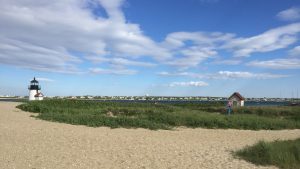Search results for: Breaking%20News%20cleantalkorg2.ru%20Latest%20News%20Breaking%20News%20Live%20Updates%20Share%20Market%20bbc%20news%20US%20News%20Stock%20Market
Nantucket Coastal Conference 2023
Nantucket Coastal Conference Nantucket Atheneum 1 India St. Nantucket, Mass. June 12, 2023 View a recording of the conference Agenda 9:30 am – 9:45 am – Welcome and Kickoff Brief introductions and welcome to the Nantucket Atheneum. Coffee, tea, and pastries served. Water refill stations available. 9:45 am – 10:30 am | Keynote Speaker:…
Read MoreRhythmic Beach Cusp Formation: A Conceptual Synthesis
Rhythmic Beach Cusp Formation: A Conceptual Synthesis Seymour, R.J. and D.G. Aubrey Marine Geology, Vol. 65, pp. 289-302, 1985 WHOI-R-85-017
Read MorePredators of Concern to New England Shellfish Growers
Predators of Concern to New England Shellfish Growers
Read MoreDiseases, Pests, and Predators of Concern to New England Shellfish Growers
Diseases, Pests, and Predators of Concern to New England Shellfish Growers Walton, W. brochures, 2005 WHOI-H-05-002, 003, and 004 Also available as PDF files by clicking on the topic of interest: diseases, pests, predators If you are a shellfish grower, harvester, or resource manager, you are well aware that diseases, pests, and predators are issues…
Read MoreEvaluating the Economic Significance of Polymetallic Sulfides Deposits
Evaluating the Economic Significance of Polymetallic Sulfides Deposits Broadus, J.M. and R.E. Bowen 15th Annual Offshore Technology Conference in Houston, Texas, May 2-4, 1983, pp. 419-426, 1983 WHOI-R-83-010
Read MoreShellfish Diseases and Their Control in Local Waters
Shellfish Diseases and Their Control in Local Waters Helpful to educators and students. Leavitt, D.F. Focal Points, 2 pp., 1998 WHOI-G-98-002
Read MoreWHOI-R-07-001 Valentine P.C. Ecological Ob
WHOI-R-07-001 Valentine P.C. Ecological Ob
Read MoreTeacher Workshop May 2013
Teacher Workshop May 2013 OCEAN SCIENCE WORKSHOP FOR TEACHERS: THE MOVING OCEAN FRIDAY, MAY 24, 2013, 10:00 – 2:30 In the morning, Dr. Steven Jayne, on ocean currents, and how and why we study them – WHOI Exhibit Center, Woods Hole In the afternoon, a unique opportunity to see and do experiments in an oceanography laboratory: Dr. Claudia…
Read MoreWHOI-R-98-003 Gonzalez-Gil, S. Detection and
WHOI-R-98-003 Gonzalez-Gil, S. Detection and
Read MoreJune 2018 Newsletter
Coastal Impacts Woods Hole Sea Grant Newsletter June 2018 From the Director With the summer upon us, many locals and frequent visitors to the Cape will be returning to their favorite beaches to find them quite different than last year. Perhaps there are fewer parking spaces or the beach access has been relocated. The past…
Read More
